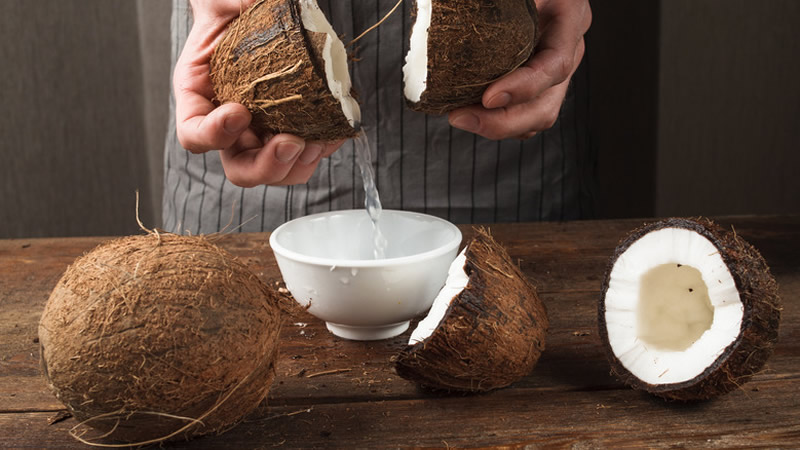With its distinctive flavor and rich texture, coconut can be a great addition to homemade desserts. It’s ideal for smoothies, ice cream, energy balls, and low-carb cookies. Alternatively, you can use coconut oil, coconut milk, or coconut flour to make your recipes healthier.
Some people even mix coconut oil into their morning coffee for a nutritional boost. This creamy beverage supports digestive health and may improve your body’s ability to burn calories, says Healthline.
Low in carbs, coconut is a popular choice for keto dieters. Also, dried coconut packs more magnesium, iron, potassium, copper, zinc, dietary fiber, and protein. Coconut is rich in medium-chain fatty acids, a class of lipids that can be converted into energy notes a 2020 review published in the Journal of Cardiovascular Development and Disease.
The fruit also contains lauric acid and other healthy fats that may lower cholesterol levels, kill disease-causing bacteria, and boost brainpower. But despite these potential benefits, eating too much coconut can do more harm than good.
This is what happens when you eat too much coconut
Do you use coconut oil or coconut milk in just about every recipe? As you probably know, more isn’t always better. Just because coconut is healthy doesn’t mean you should go overboard.
First of all, this fruit is nutrient-dense and can cause you to pack on extra pounds. Second, it boasts large amounts of saturated fat, which may lead to high cholesterol and heart disease, according to 2020 research published in the journal Circulation.
Ideally, you should get no more than 6% of your daily calories from saturated fat, recommends the American Heart Association. Each gram of fat has 9 calories (via USDA), meaning that if you’re on a 2,500-calorie diet, you may consume up to 16-17 grams of saturated fat per day — that’s slightly over an ounce of dried coconut or 1 tablespoon of coconut oil. By comparison, 1 tablespoon of coconut oil provides 121 calories and 13.5 grams of fat. From this perspective, your best bet is to opt for coconut flour, which has most of the fat removed, notes WebMD.
Another potential side effect of eating too much coconut is indigestion. A 2017 study featured in Evidence-Based Complementary and Alternative Medicine found that coconut oil can cause mild diarrhea, especially when consumed on an empty stomach.
This drawback may be due to its high-fat content, suggests Harvard Medical School. Last but not least, some manufacturers add sugar to coconut products, which increases the calorie count. For this reason, it’s important to check the labels for hidden sugars and enjoy these treats in moderation.


